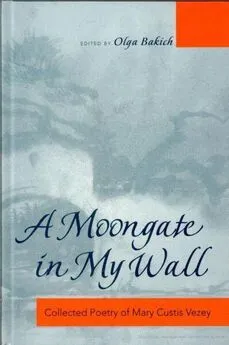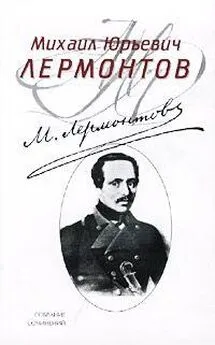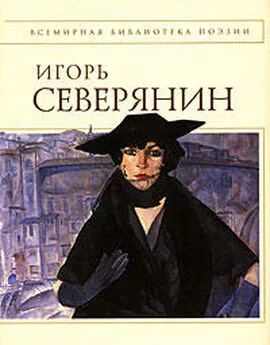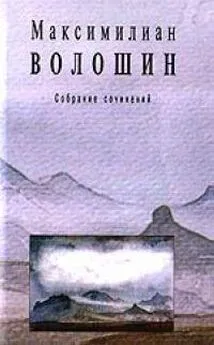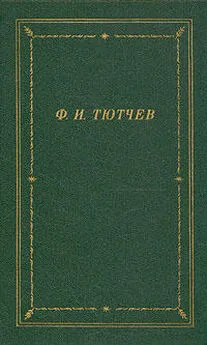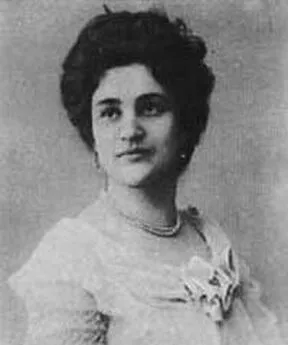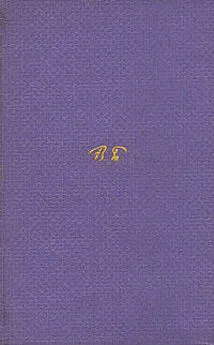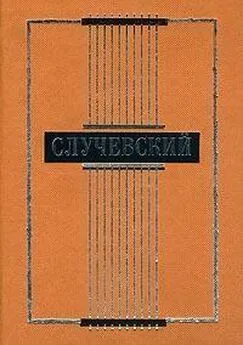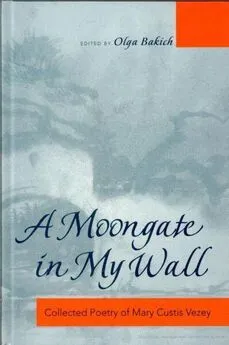Мария Визи - A moongate in my wall: собрание стихотворений
- Название:A moongate in my wall: собрание стихотворений
- Автор:
- Жанр:
- Издательство:Peter Lang Publishing, Inc.
- Год:2005
- Город:New York
- ISBN:0-8204-7837-7
- Рейтинг:
- Избранное:Добавить в избранное
-
Отзывы:
-
Ваша оценка:
Мария Визи - A moongate in my wall: собрание стихотворений краткое содержание
Мария Визи (1904-1994) – поэтесса «первой волны» русской эмиграции. Данное собрание стихотворений, изданное в США, под редакцией Ольги Бакич, наиболее полное на данный момент собрание ее поэтических произведений и переводов.
Издание состоит из 4 частей и включает в себя:
1. Три опубликованных сборника М. Визи: 1929, 1936 и 1973 гг.
2. Стихотворения, не вошедшие в сборники, написанные на русском языке.
3. Стихотворения, не вошедшие в сборники, написанные на английском языке.
4. Неопубликованные переводы
Вступительная статья и комментарии на английском языке.
A moongate in my wall: собрание стихотворений - читать онлайн бесплатно полную версию (весь текст целиком)
Интервал:
Закладка:
Мария Визи. A moongate in my wall: собрание стихотворений
Boris Thomson. Foreword
Mary Custis Vezey is a little-known poet of the Russian post-1917 diaspora. She is unusual among emigre writers for two reasons: first, that she spent most of her life in China or the United States, and so did not consider herself an emigre; and second, that she wrote in both Russian and English (indeed her first book contains poems in both languages). She comes from the Chinese branch of the Russian diaspora; its work is much less well-known than those of the European and North American emigre communities.
Mary Vezey published three books of lyric poetry in her lifetime, and many individual poems in a variety of journals and occasional collections. She was also a translator into both Russian and English. Most of her poems are less than twenty lines long, and only a few run to more than fifty. Like many Russian poets who grew up in the 1920s, she chose to follow the more conservative styles of Blok (1880–1921), Gumilev (1886–1921), Akhmatova (1889–1966), and Esenin (1895–1925) — indeed she translated poems by the first three of these — as representatives of a culture that seemed under threat from the Revolution. This allegiance takes the form of themes (in particular, nostalgia and escapism), imagery, rhymes and rhythmic preferences. In her first collections (1929 and 1936) her own individuality is often obscured by these more powerful voices, but her work of the 1950-1980s is more independent. She displays a great interest in technique; several poems exhibit a new rhyming virtuosity, while quite a few are unrhymed, which was unusual in the tradition which she had previously followed. An unexpected development of this period is the attempt to work in the conventions of classical Chinese poetry, which she also translated in these years. In her translations, she shows a widening of interests, not just in the favourite poets of her youth, but also in such difficult poets as Marina Tsvetaeva, of whom she produced some of the best translations in English known to me.
Dr Bakich has performed a valuable service in assembling this collection from a host of rare and almost inaccessible literary journals. It will introduce readers to a new voice in Russian poetry, quiet, perhaps, but once one has caught its tone, individual and memorable. Mary Vezey may be a minor poet, but she is a real poet, none the less.
Boris Thomson
Professor Emeritus
University of Toronto
Ольга Бакич. Введение(на англ. языке)
This book will bring belated recognition and appreciation to a bilingual poet, Mary Custis Vezey (1904–1994), who has left us a fine heritage of published and unpublished works.
Born in New York of a Russian mother and an American father, she lived in Russia, China, and the USA. Her three collections of predominantly Russian poetry came out in the cities of Russian emigration — Harbin (1929), Shanghai (1936), and San Francisco (1973) — and some of her poems appeared in Russian emigre periodicals. Her Russian poetry belongs to the splendid literature created by the first-wave emigres, forced to leave Russia after the 1917 Revolution and the Civil War. In the Russian diaspora in China, her contemporaries included lustina Kruzenshtern-Peterets (19031983), Marianna Kolosova (1903–1964), Nikolai Peterets (1907–1944), Olga Skopichenko (1908–1997), Natalia Reznikova (1908–1998?), Nikolai Svetlov (1908–1970?) and Sergei Sergin (1908–1934). In Europe and the USA, she belongs to the generation of Nina Berberova (1901–1993), Vladimir Smolenskii (1901–1961), Boris Poplavskii (1903–1935), Sofia Pregel' (1904–1973), Gertruda Vakar (1904–1973), Jurii Ivask (1907–1986), Jurii Mandel'shtam (1907–1943), Lazar' Kel'berin (1907–1989), Anatolii Shteiger (1907–1944), Lidila Alekseeva (1908–1989), and Igor' Chinnov (1909–1996).
At the same time, Mary Vezey was an American poet: both the Russian and the English language were native to her. All her life she felt that she had “two homes» [1] Letter from V. Pereleshin to M. Vezey, 11 June 1973. All translations from Russian in this introduction are mine. OB.
.I In 1990, she wrote: "In Russia my poems are now published as emigre poetry, but I am not an Emigre at all. Although I write in Russian, I am an eleventh-generation American! Recently, a wonderful (though terrifying) series 'The Civil War' was shown on television, and I felt it very keenly. I saw several of my relatives (southerners) there. When my schoolmates in a Russian school had asked me who I was, a Russian or an American, I had proudly answered that I was hundred per cent Russian and hundred per cent American» [2] Letter from M. Vezey to O. Bakich, 28 September 1990.
. She also deeply loved China, the home of her youth; the images of these three countries intertwine in a dreamy surrealist image in a late, unfinished poem (poem 486) [3] Poem numbers refer to the numbering of this collection.
. "Even if I'll never sail / in my tiny boat, / neither in dreams, nor awake, / on the Amazon, / yet I will always, / as long as I live,/keep the memory of the Neva River/on a Chinese junk-boat."
Mary Custis Vezey, or Mariia Genrikhovna Vizi (as she was known in Russian), was born on 17 January 1904 in New York. Her father, Henry Custis Vezey (1873–1939) was an American. His ancestors moved from England to the USA at the beginning of the 17th century and became related to the American family Custis, to the first American president George Washington, and to General Lee, the leader of the Confederates in the American Civil War. As a young man, Henry Custis Vezey went to Europe, studied languages, and worked in Paris. At the end of the 19th or in the early 20th century, he worked at the American Embassy in St. Petersburg, becoming a Vice-Consul in 1914. During the First World War, he edited and published an English-language newspaper Russian Daily News, and later a bulletin Russkih News Letter (Translations from Russian Newspapers) [4] A few issues of Russian News Letter (Translations from Russian Newspapers) — no 531, 2/15 March 1917; no 533, 4/17 March 1917; no. 534, 5/18 March 1917 — are preserved in the Archive James Colt Wood Papers, 1908–1923. Folder 4. Russia 1917.
. Genrikh Genrikhovich Vizi, as Russians called him, came to speak perfect Russian. He married Mariia Platonovna Travlinskaia (1974–1950), granddaughter of an archpriest of the lsaakievskii Cathedral, M.F. Raevskii, and they had two children: Vladimir (12 July 1902) and Mary (17 January 1904).
Mary Vezey was four weeks old, when the family returned to Russia from a visit to New York. In St. Petersburg, Vladimir and Mary grew up bilingual, if not trilingual: Russian, English, and French. Her French was such that she wrote poems in French as well, but they were not preserved, as she modestly felt that they "should be first shown to a person who knows the language properly, not the way I do." [5] Letter from M. Vezey to O. Bakich, 28 March 1994.
Her Russian childhood was happy: a good school, theatres, ballets, concerts, vacations at Kuokkala on the shores of the Gulf of Finland, Finland then being a part of the Russian empire. Known as "the Northern Riviera," Kuokkala was a resort popular among Russian artistic and literary circles, and several prominent writers and painters had cottages there.
After the 1917 Revolution in Russia, Henry Vezey was transferred to the American Consulate in Harbin. The family thus settled in China, but Harbin, a major railway junction of the Chinese Eastern Railway built by Russia in 1898–1903, was in many respects a Russian city. By 1917, the junction had grown into a large city of some 70 thousand Russian and Chinese inhabitants. In the early 1920s, the population rapidly increased with the arrival of some 200 thousand Russian emigres. For some time after the Russian Revolution, the Chinese Eastern Railway retained its old, predominantly Russian administration, and Harbin had Russian churches, clubs, theatres, schools, and several post-secondary institutions. In spite of the drastic political changes of the 1920s and 1930s, the diminishing population of Harbin Russians succeeded in maintaining a semblance of Russian pre-revolutionary life until the end of the Second World War.
In the early 1920s, Henry Vezey became editor-publisher of the Harbin English newspaper Russian Daily News, soon renamed Harbin Daily News, registered at the American Consulate-General in Harbin. The newspaper had supplements in Russian. The forced move from St. Petersburg (renamed Petrograd in 1914) across Russia on the brink of the devastating Civil War to distant and unknown China was a great change for his fourteen-year-old daughter. In a poem written in 1921, she addressed the poet A.S. Pushkin, saying that had "the great Russian genius" been alive, "your heart would have constricted with a terrible pain,/You would have burned with pain and shame/For that Russia, which always / Seemed holy" (poem 268).
She started writing poetry at the age of six. Her first efforts were in Russian, and a teacher, impressed by a poem submitted in class, began her encouraging comment with the words "To the Future Poet." [6] Note by M. Vezey on the manuscript of the poem “V ogromnykh” (In the enormous) (poem 376).
At sixteen, Mary Vezey wrote: "I don't want to be a poet / In order to enjoy poetic laurels, /And not in order to shine /With an empty glory in this world," foreseeing a life guided not by the approval of others, but by inspiration and by "one glorious realization / That I am a poet, for that's what happiness is!" (poem 247). In an early English poem, "A Prayer" (poem 493), she said: "Give me the soul of a poet,/That's filled with music and love…" At the same time, the seventeen-year old poet observed with a touch of humour: "Alas, the languages of all the world's nations / Are so poor that the word "poet" / Is a definition of Shakespeare / And … (oh, innocent satire!) / Of me; there is no other" (poem 270).
Favourite poets of her childhood were A.S. Pushkin and M.lu. Lermontov. Adolescence and youth brought admiration for the Silver Age of Russian poetry, particularly for Alexander Blok, Nikolai Gumilev, and Anna Akhmatova. Blok was seen as the very essence of poetry: "in our youth we were 'discovering' Blok on our own, we fell in love with him, and this love stayed with us for the rest of our lives. (…) There will be no other Blok for us." [7] M. Vizi “Vospominanija o Bloke” (Memories of Blok), Russkaja zhizn (Russian Life) San Francisco, August 1982.
In Harbin, Mary Vezey continued her education at the prestigious Girls' School of the Harbin Commercial Schools. Musia, as Russian friends called Mary, retained fond memories of this excellent Russian school and formed several lifelong friendships there. In 1921–1922, she studied at the North China American School run by the American Presbyterian Mission for children of American missionaries and other English-speaking foreigners, in the city of Tongzhou near Beijing. Her English poems of these years (poems 500, 501) and an imaginary diary of her future life as a painter appeared in the school annual N.C.A (The North China American) [8] The N.C.A., 1920–1922, p. 14–16, 43, 52, 56, 66.
. In the spring of 1922, Mary Vezey graduated from both the North China American School and the Harbin Commercial Schools [9] N.P.A. (N.P. Avtonomov), "Spiski okonchivshikh (1910–1925 gg.)" (Listsof Graduates (1910–1925), Харбинское коммерческое училище Китайско-Восточная железная дорога. (Harbin Commercial Schools of the Chinese Eastern Railway, San Francisco, no. 5, 1958, p. 18.
, and worked for a couple of years as a secretary to Howard Lee Haag, Chief Secretary of the Harbin branch of the YMCA. The branch, opened in the early 1920s, maintained a Russian gymnasium, various professional evening courses for Russian emigres, and several sport and cultural organizations and activities.
Интервал:
Закладка:
